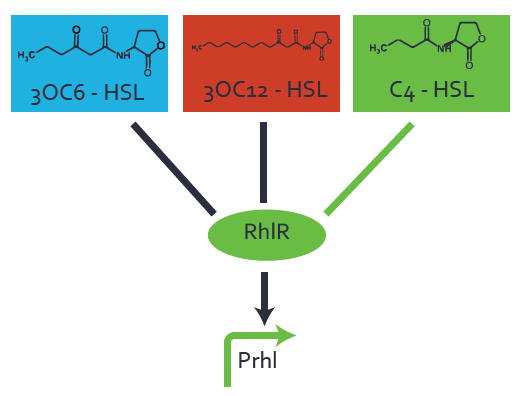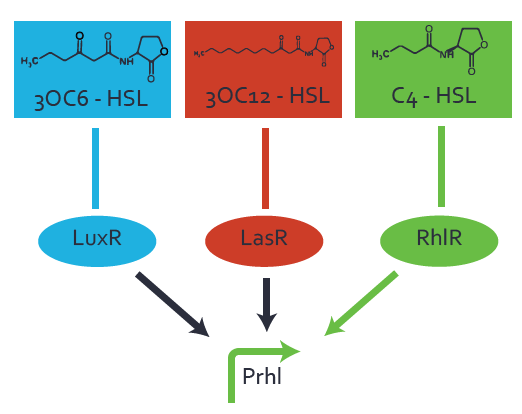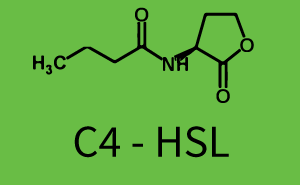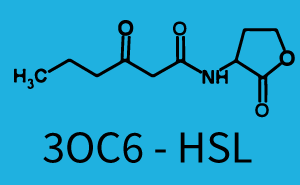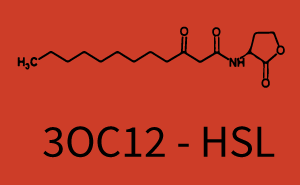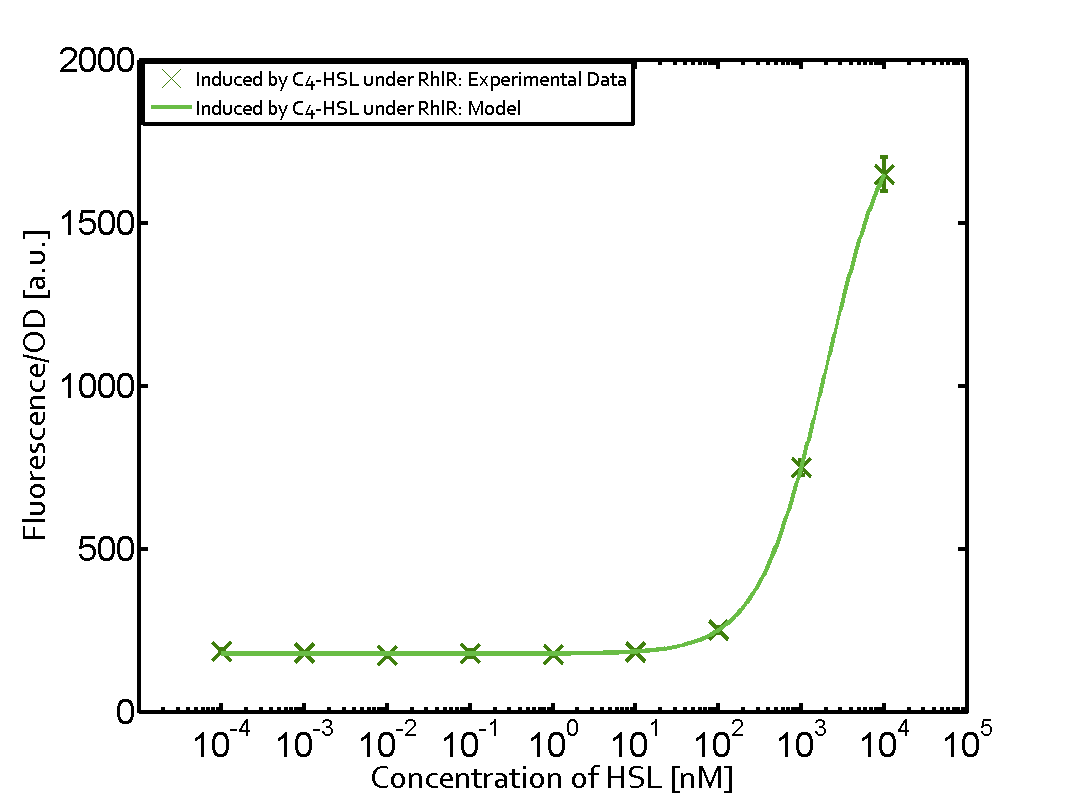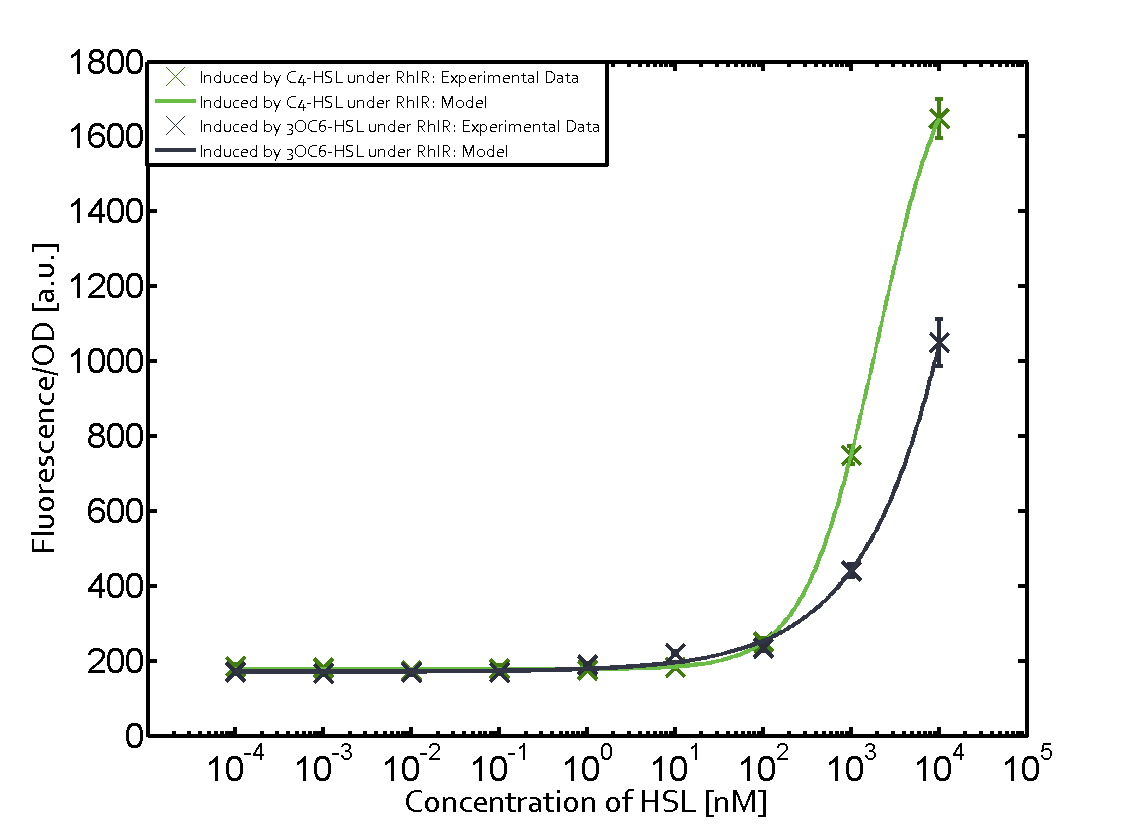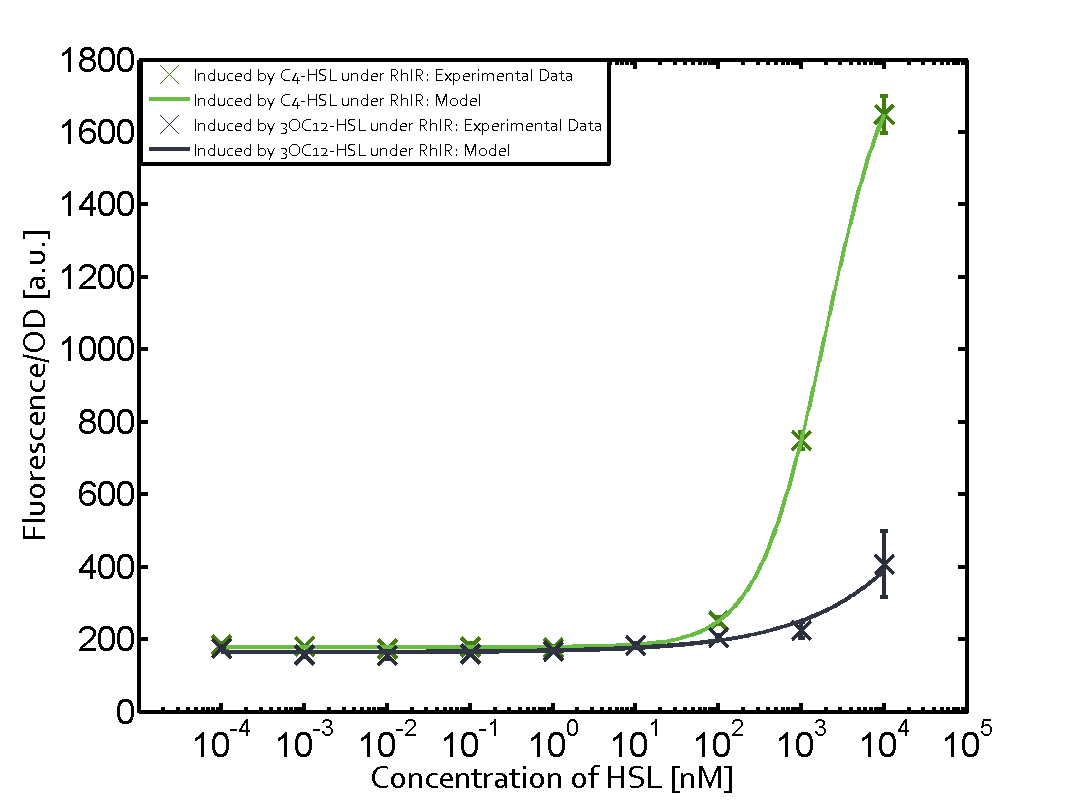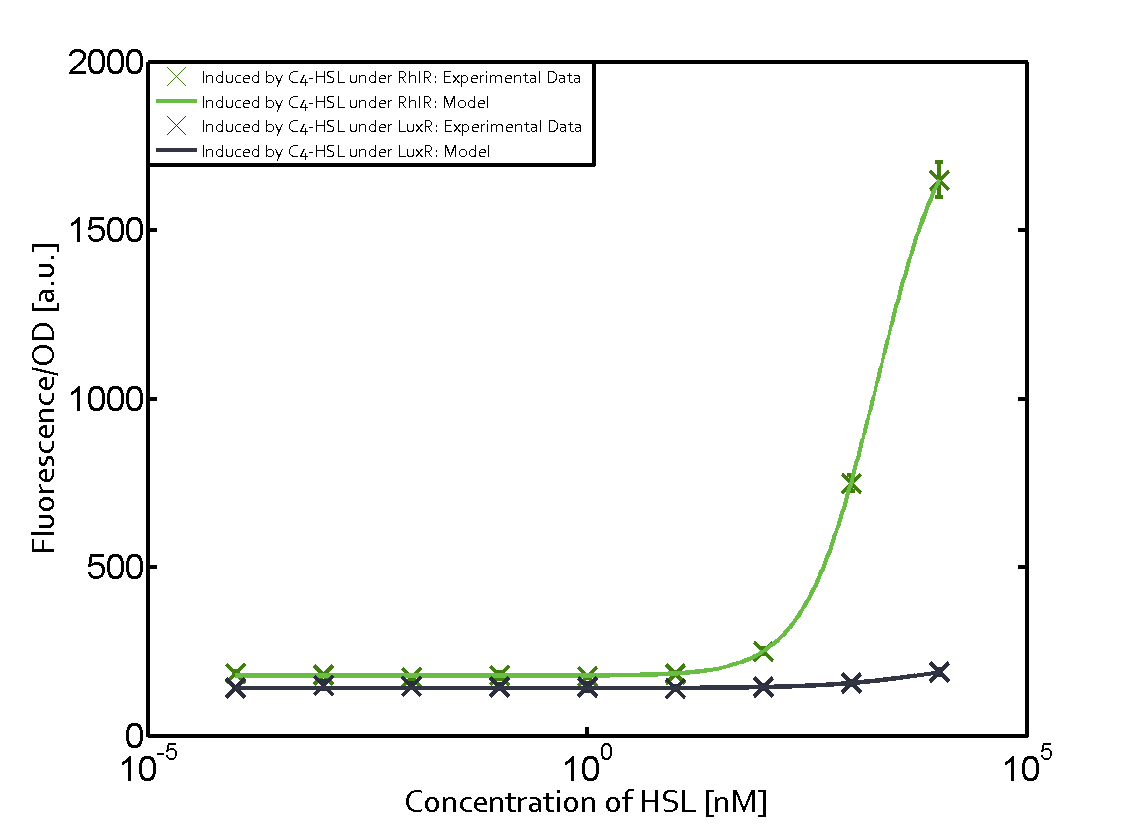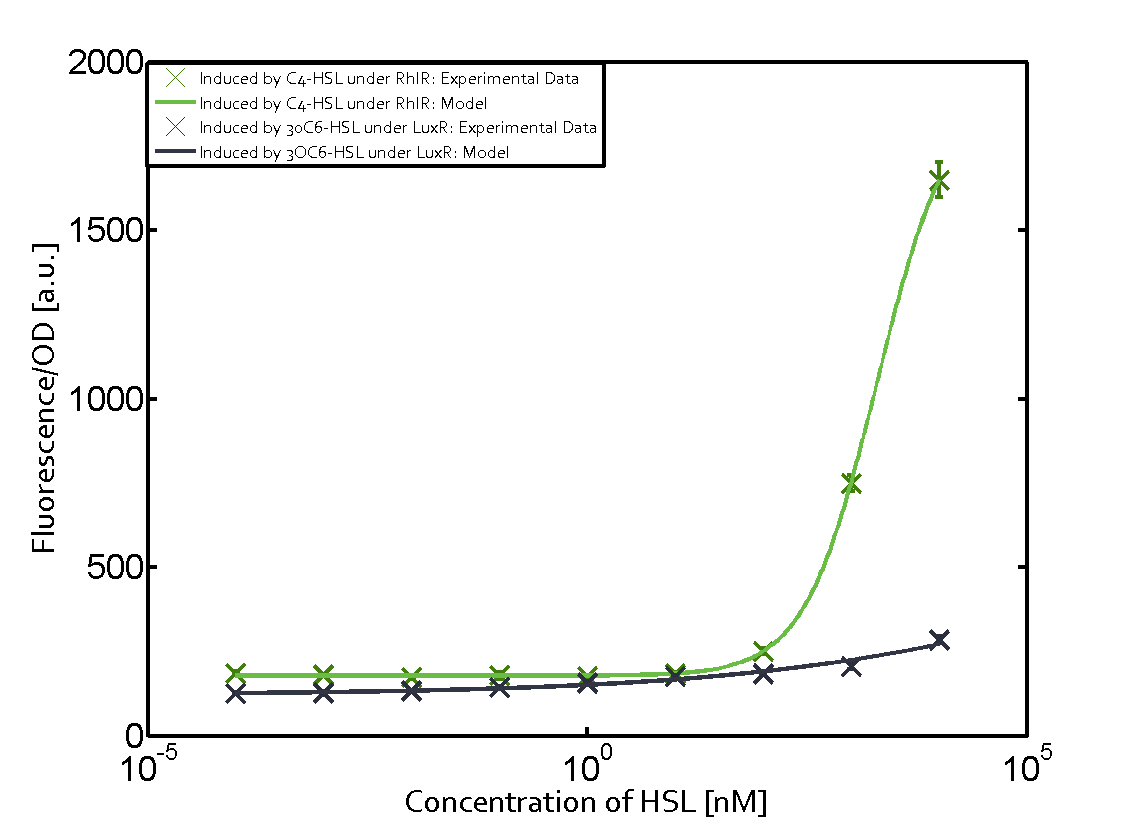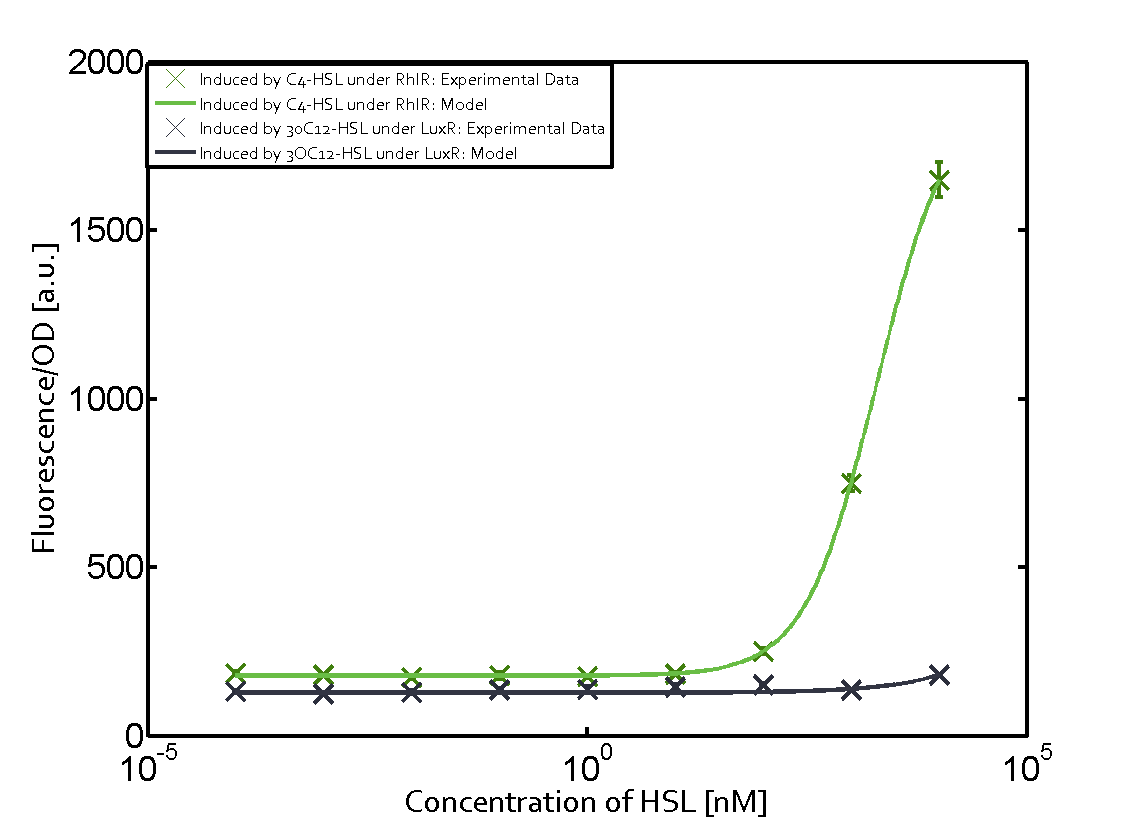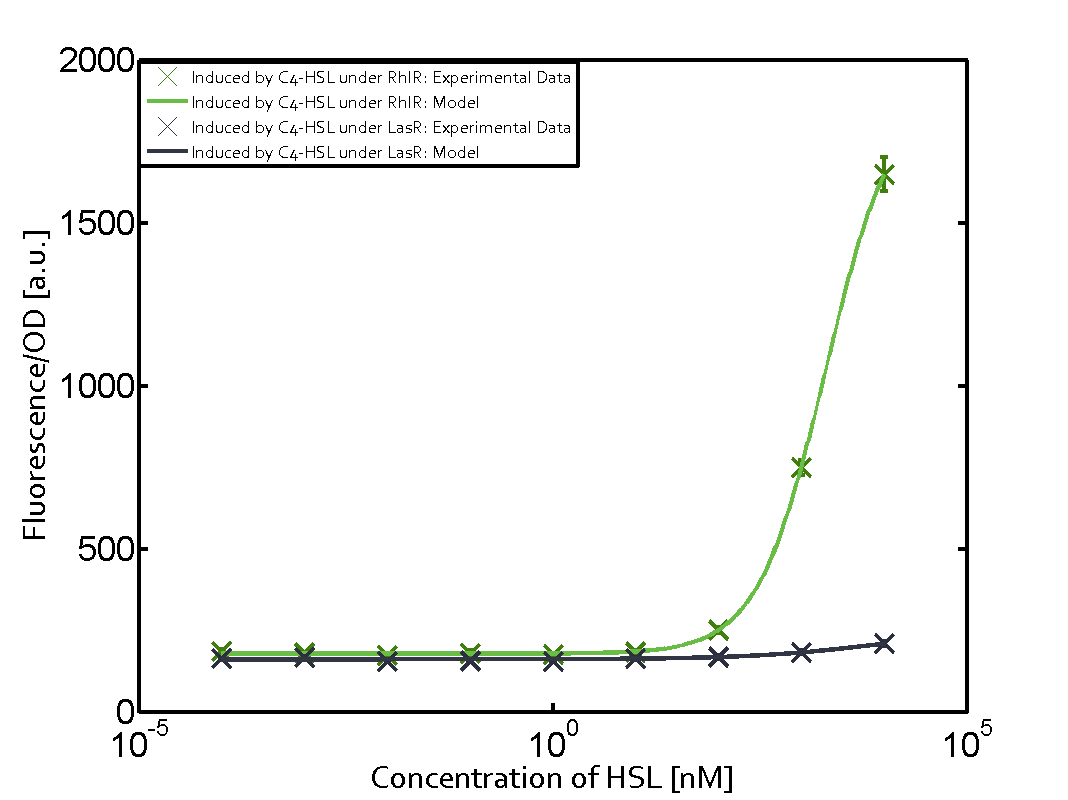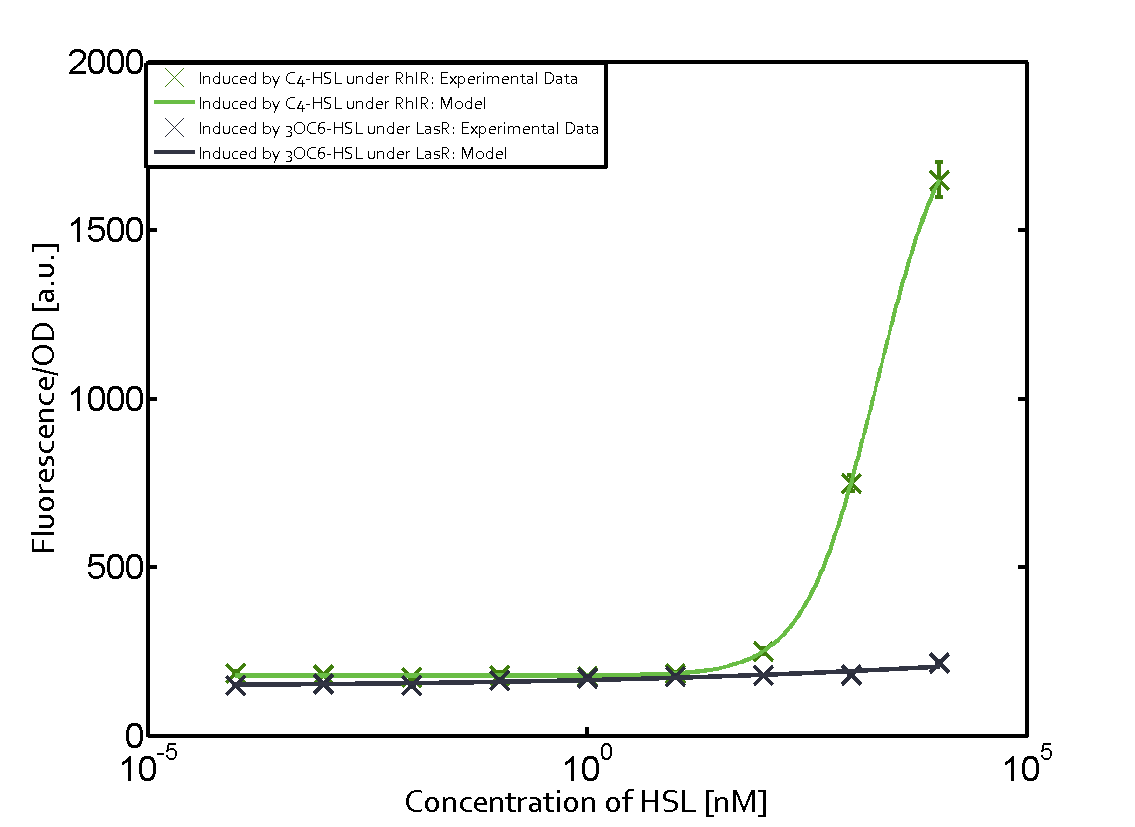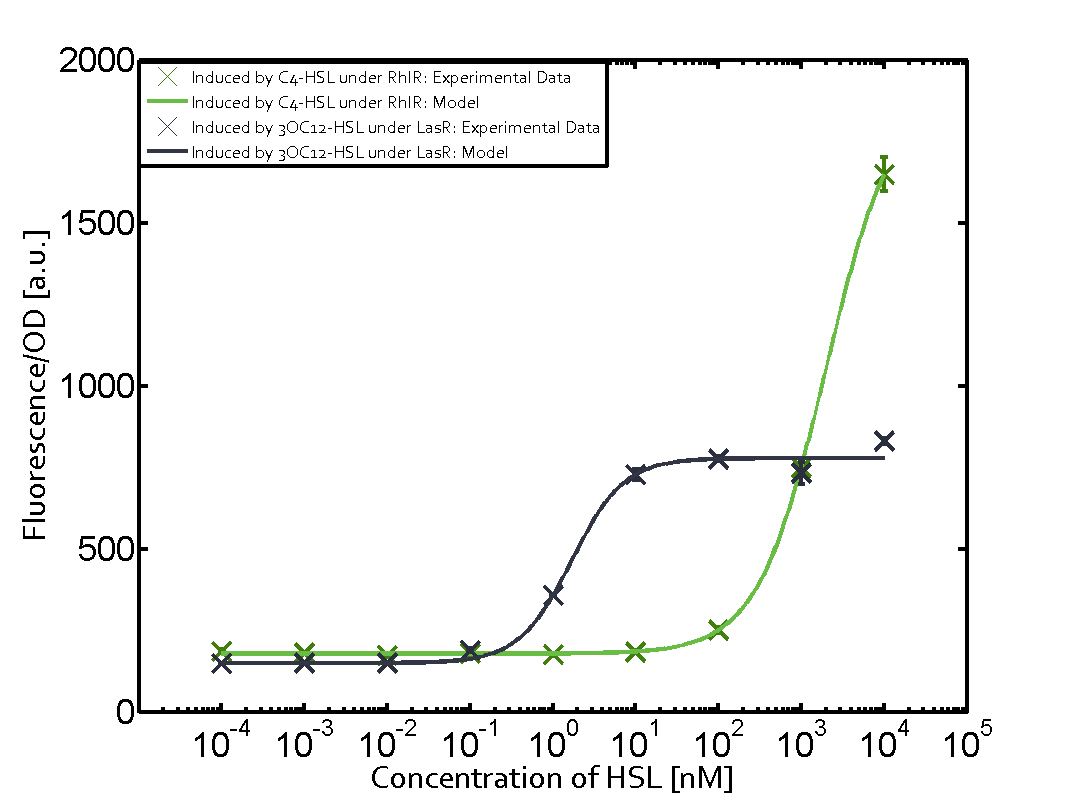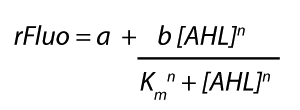Part:BBa_I14017:Experience
This experience page is provided so that any user may enter their experience using this part.
Please enter
how you used this part and how it worked out.
Applications of BBa_I14017
User Reviews
UNIQ26cad3ea3a07e27a-partinfo-00000000-QINU
|
••••
ETH Zurich 2014 |
Characterization of two-order crosstalk on the promoterBackground informationThe E. coli strain used and the experimental set-up are described above. However, here we focus on the characterization of crosstalk and as a result we used only one, strong promoter (BBa_J23100) controlling the three different regulators (LuxR, LasR, and RhlR) used in the experiments in order to quantify crosstalk with pRhl. In the following, we describe all the different levels of crosstalk we have assessed. First-order crosstalkIn the first order crosstalk section we describe crosstalk of pRhl due to RhlR binding to inducers different from C4-HSL or pRhl itself binding a regulator-inducer pair different from RhlR-C4-HSL. First Level crosstalk: RhlR binds to different HSL and activates the promoterIn the conventional system C4-HSL binds to its corresponding regulator, RhlR, and activates the pRhl promoter (figure 2, green). However, RhlR can potentially also bind other AHLs and then activate pRhl (figure 2, 3OC12-HSL in red and 3OC6-HSL in blue). Second Level crosstalk: other regulatory proteins, like LuxR, bind to their natural HSL substrate and activates the promoterSecond order crosstalk: Combination of both cross-talk levelsOther regulatory proteins, like LuxR, bind to different HSL and activates the promoter. Results
Modeling crosstalkEach experimental data set was fitted to an Hill function using the Least Absolute Residual method. The fitting of the graphs was performed using the following equation :
| ||||||||||||||||||||||||||||||||||||
|
Antiquity |
This review comes from the old result system and indicates that this part did not work in some test. |
UNIQ26cad3ea3a07e27a-partinfo-00000003-QINU

 1 Registry Star
1 Registry Star